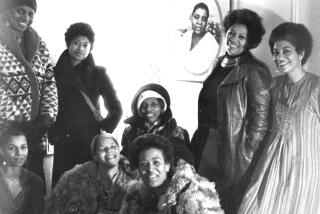TEMPERED ZEAL:<i> by H. Richard Uviller (Contemporary Books: $19.95) </i>
Professor H. Richard Uviller decided to spend his year’s sabbatical leave finding out how the law works on the streets. “I was beginning to wonder,” he writes, “whether I was building classroom theories out of stale and secondhand material.” Uviller, a faculty member at Columbia University since 1968, rode his bicycle down to the 9th Precinct of the New York City Police Department one day and asked to spend time with police officers on the beat. “Tempered Zeal” recounts Uviller’s experiences as he and the policemen he made daily rounds with tried to gain an understanding of one another’s views of the law. Uviller was confronted with the practice, the policemen with theory.
He found the police extremely aware of the limitations of their authority and frustrated by having to watch justice fail again and again. (“Tempered Zeal” refers to the energy and restraint that are required for good police work.) While Uviller learned a good deal about the immediate legal decisions a working cop has to make, he also served as a reminder to the police of the reasons behind the laws--why, for instance, lawyers must fight to get criminals off on technicalities. It is clear that one of the revelations for Uviller was how the psychology of the community--law-abiding citizens and criminals both--are as essential to a cop as a knowledge of the law. One policeman who grew up in the patrol area says, “The people in this precinct were raised to lie to us. They wouldn’t tell us what we wanted to hear even if it would help them. That’s the way I was raised myself.” More than a real-life version of “Hill Street Blues,” Uviller’s narrative reflects on the importance of the stories, and compares them with relevant court decisions. While some passages are slow, there is much of interest in the book, and Uviller is particularly successful at shedding his pedantic style when he simply tells the stories of the beat.
More to Read
Sign up for our Book Club newsletter
Get the latest news, events and more from the Los Angeles Times Book Club, and help us get L.A. reading and talking.
You may occasionally receive promotional content from the Los Angeles Times.






